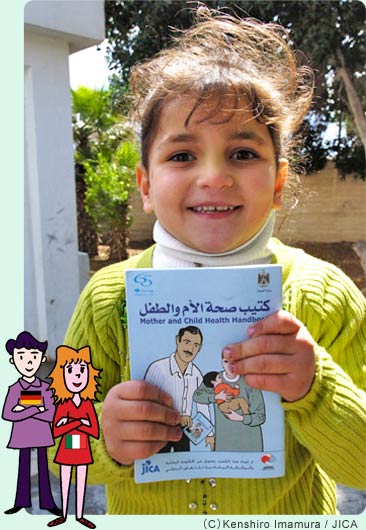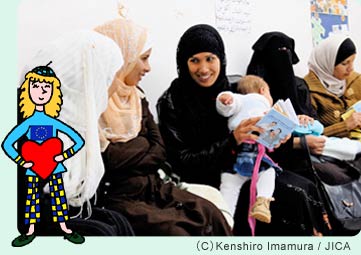
When women in Japan find out they are pregnant, one of the first things they do is to apply for a Maternal and Child Health Handbook at their local government office. The handbook makes parenthood seem more real and increases their excitement and anticipation about the upcoming birth
A Focus of Global Interest
These handbooks date back more than 60 years to 1942, during World War II, when a handbook for pregnant women and new mothers was introduced. The Maternal and Child Health Handbook contains information and tips on pregnancy, delivery, and parenting. It also has pages for doctors to fill in on the woman's condition before, during, and after the delivery, as well as the child's development and immunizations after birth.
By using the handbook, women are much less likely to miss their regular checkups. The handbooks also help mothers to provide accurate information about the child's development and vaccination records to doctors and schools when necessary. The handbook system has contributed to Japan's low infant mortality rate.
In recent years the Japanese handbooks have attracted the attention of people around the world, and today not only women in Japan but a growing number of women outside Japan are receiving them.

"Messages of Life"
In Indonesia, mother and child health handbooks have been issued since 1994 as part of a Japan International Cooperation Agency(JICA) project, which began after a doctor taking part in a JICA training program saw one of the handbooks in Japan. Illustrations were added to the Indonesian version so people can understand and use them without difficulty, and other changes have been made to enhance their usefulness as a parenting guide.
Since March 2008, handbooks in Arabic have been distributed throughout the Palestinian Authority, including the refugee camps in the West Bank and Gaza Strip, through a project by JICA and other organizations. A total of 120,000 copies were produced for the first year. The handbook was named "Messages of Life," because women in possession of them can pass through checkpoints when travel restrictions are in place in areas of conflict and get treated in different areas.
The handbooks have also been introduced in other Asian countries, Africa, and Latin America. They are continuing to spread as a valuable means to protect the health of pregnant women and their children.










